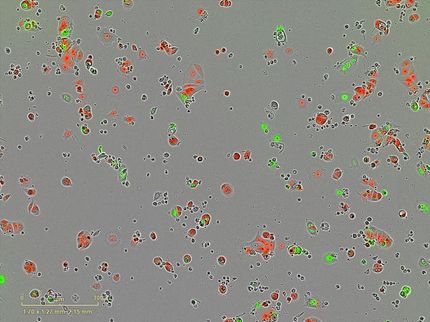Calcium and vitamin D help hormones help bones
Should women take calcium and vitamin D supplements after menopause for bone health? Recommendations conflict, and opinions are strong. But now, an analysis from the major Women's Health Initiative (WHI) trial throws weight on the supplement side—at least for women taking hormones after menopause. The analysis was published online in Menopause, the journal of The North American Menopause Society.
Among the nearly 30,000 postmenopausal women in the hormone trial, some 8,000 took supplemental calcium (1,000 mg/day) and vitamin D (400 mg/day), and some 8,000 took look-alike placebos. These women came from all the hormone groups in the study—those who took estrogen plus a progestogen (required for women with a uterus), those who took estrogen alone, and those who took the hormone look-alike placebos. The researchers looked at how the rates of hip fracture differed among women who took hormones and supplements, those who took hormones alone, and those who took neither.
The supplements and hormones had a synergistic effect. Women using both therapies had much greater protection against hip fractures than with either therapy alone. Taking supplements alone wasn't significantly better than taking no supplements and no hormones. The benefit of hormone therapy was strong in women who had a total calcium intake (supplements plus diet) greater than 1,200 mg/day. Similarly, the benefit was strong in women who had higher intakes of vitamin D, but the individual effect of each one could not be determined because the two supplements were given together.
The effects translated into 11 hip fractures per 10,000 women per year among the women who took both hormones and supplements compared with 18 per 10,000 women per year among those who took hormones only, 25 per 10,000 women per year among those who took supplements alone, and 22 among those who got neither therapy.
These results suggest, said the authors, that women taking postmenopausal hormone therapy should also take supplemental calcium and vitamin D. Although they couldn't specify how much, they noted that the benefits seem to increase with increasing total intake of calcium and vitamin D. The dose will depend on keeping side effects, such as constipation from too much calcium, to a minimum, they said.
That differs from the recommendation of the US Preventive Services Task Force (USPSTF), made earlier this year. USPSTF stated there was no basis for recommending calcium and vitamin D supplements to prevent fractures. But now, with a study this large, there may well be.
Most read news
Other news from the department science

Get the life science industry in your inbox
By submitting this form you agree that LUMITOS AG will send you the newsletter(s) selected above by email. Your data will not be passed on to third parties. Your data will be stored and processed in accordance with our data protection regulations. LUMITOS may contact you by email for the purpose of advertising or market and opinion surveys. You can revoke your consent at any time without giving reasons to LUMITOS AG, Ernst-Augustin-Str. 2, 12489 Berlin, Germany or by e-mail at revoke@lumitos.com with effect for the future. In addition, each email contains a link to unsubscribe from the corresponding newsletter.



















































